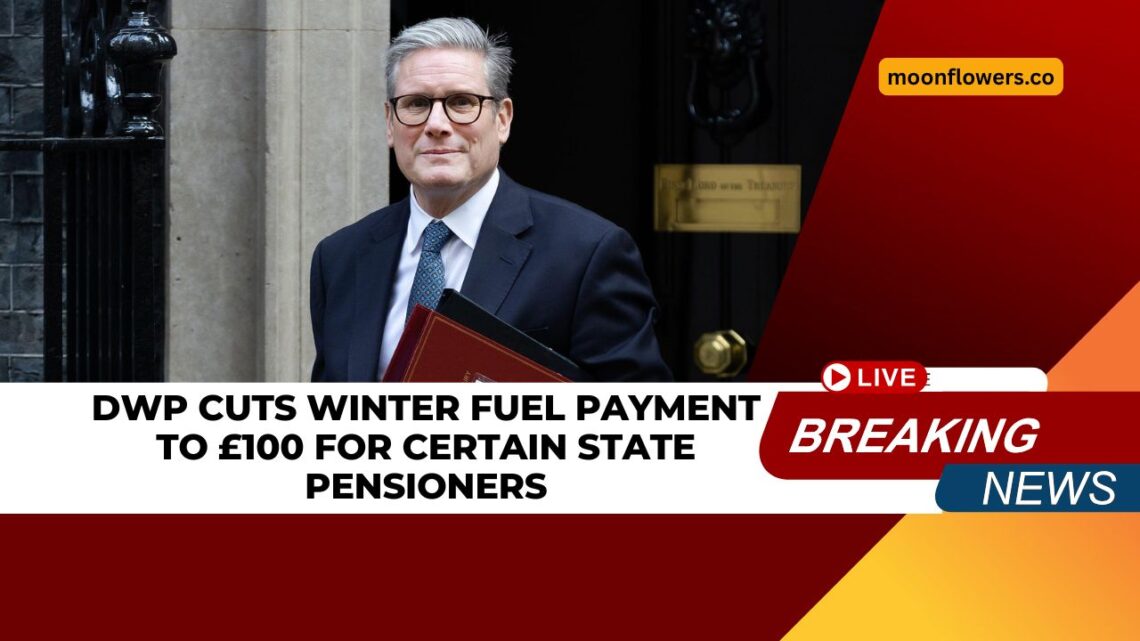The Department for Work and Pensions (DWP) has confirmed major changes to the Winter Fuel Payment for the 2025/26 season. Under the new rules, certain state pensioners will see their support cut to £100, with payments now being split between eligible couples.
This update affects how much financial help pensioners receive for heating costs during winter, and understanding the rules is crucial to avoid unexpected tax deductions.
How the Winter Fuel Payment Will Be Split
Under the Winter Fuel Allowance regulations, couples who are both eligible pensioners will no longer receive a combined payment into one account. Instead, the payment will be divided:
- Where a household is due £200, each pensioner will now receive £100 directly.
- If one pensioner earns £40,000 or more, their £100 will be reclaimed through the tax system.
- If the other pensioner earns £30,000 or less, they will keep their £100 in full as they are below the reclaim threshold.
This ensures that higher earners contribute back while lower-income pensioners retain their support.
The Exception for Pension Credit Claimants
According to Martin Lewis’ Money Saving Expert team, there is one key exception to the split payment rule.
- If a couple is claiming Pension Credit, they will receive their £200 (or £300 if one is aged 80+) as a single lump sum.
- Importantly, no clawback applies in this case because anyone eligible for Pension Credit would not be earning enough for a tax reclaim to be triggered.
This rule ensures vulnerable pensioners continue to receive full assistance without deductions.
Eligibility Criteria for Winter 2025/26
To qualify for the Winter Fuel Payment in the 2025/26 season:
- You must have reached State Pension age by the end of the qualifying week.
- The qualifying week for winter 2025/26 will be 15 to 21 September 2025.
- Eligibility is based on both age and place of residence during this qualifying period.
Payments will be £200 per household, or £300 where at least one person is aged 80 or above.
How Payments Will Be Reclaimed Through Tax
For pensioners not receiving income-related benefits, shared payments will be recovered through the tax system based on individual taxable incomes:
- HMRC will reclaim the payments via PAYE for most individuals.
- Those who file a Self-Assessment tax return will repay it through that process.
- Household incomes will not be combined; only individual incomes are considered.
- HMRC will issue clear guidance and work with professional bodies to simplify the process.
This approach ensures higher earners contribute back while low-income pensioners retain their payment.
Option to Opt Out of the Winter Fuel Payment
For pensioners who do not want to receive the payment, the DWP is developing a simple opt-out system. This will prevent HMRC from having to reclaim the payment later.
More details on this opt-out system will be provided on GOV.UK in due course.
The government’s decision to reduce the Winter Fuel Payment to £100 for some pensioners marks a significant shift in how support is distributed. While it ensures fairness by reclaiming payments from higher earners, it also safeguards vulnerable groups like Pension Credit claimants from deductions.
Pensioners should check their income levels, eligibility, and tax position ahead of the 15–21 September 2025 qualifying week to avoid any surprises. Staying informed will help ensure that those who need support the most continue to benefit from it.
FAQs
How much Winter Fuel Payment will I get if I’m over 80?
If you are aged 80 or above, your household could receive £300. If both are pensioners, it may be split unless you receive Pension Credit.
What if my income is above £40,000?
If your income is £40,000 or more, your £100 Winter Fuel Payment will be reclaimed by HMRC through the tax system.
Can I refuse to get the Winter Fuel Payment?
Yes. The DWP is planning an opt-out system so individuals can decline the payment and avoid later tax reclaim.
